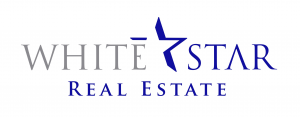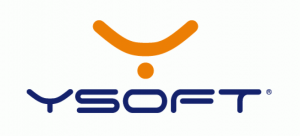Johnson & Johnson again voted Most Respected by Barron's
18.02.2009Company: Johnson & Johnson, s.r.o.
Johnson & Johnson (JNJ) is again the most respected big company in the world
See the company profile
Johnson & Johnson (JNJ) is again the most respected big company in the world, for the second straight year and a third year out of four, according to the investors who completed Barron's survey. Perhaps surprisingly, Warren Buffett's Berkshire Hathaway (BRKA) placed second. Buffett's status among investors remains undiminished by high-profile investments in GE and Goldman Sachs (GS), which were bold, but quickly pulled underwater by the deepening financial crisis -- not to mention a bear market that cost his own stock 40% of its value in five months. As one respondent commented, "Putting capital to work when others are either fearful or unable to is what you would expect from Buffett and [Berkshire Vice Chairman Charlie] Munger."
As in years past, Barron's solicited the opinions of professional money managers about only the 100 largest companies in the world, based on total stock-market capitalization as of Dec. 31, as determined by Dow Jones Indexes. Beta Research of Syosset, N.Y., helped us conduct the Most Respected Companies survey, which elicited responses from 82 investors across the country, ranging from proprietors of small investment-advisory firms to the chief investment officers of giant money-management concerns overseeing hundreds of billions of dollars.
Survey participants were asked to select one of four statements for each company:
Highly Respect, Respect, Respect Somewhat or Don't Respect. A point value was assigned to each response -- with the heaviest weighting accorded to Highly Respect -- and a mean score was tabulated for each. In cases of identical mean scores, the higher ranking went to the company with the most Highly Respect votes.
Because market value as of a certain date is pivotal to inclusion on the list, stock-price changes play a significant role in determining which companies are the largest 100 at the time of our annual reshuffling. This year, 24 companies were replaced because their market capitalizations have shrunk since June 30, the cut-off date for determining 2008's biggest companies. The credit crisis and the collapse of commodity prices ensured most of the deletions were banks and natural-resource companies, including Royal Bank of Scotland (RBS), Potash Corp. of Saskatchewan (POT), Monsanto (MON) and Citigroup (C).
The two dozen departures made room for a collection of mostly more stable and somewhat less cyclical blue-chips, such as McDonald's (MCD), Walt Disney (DIS) and Kraft Foods (KFT). The largest company on the list, ExxonMobil (XOM), had a market cap of $406 billion as of Dec. 31 (now $380 billion), while the smallest, Kraft Foods, was valued at $39.5 billion (now $37 billion).
Comparing the latest results with those of prior surveys, it is clear that the taint of financial crisis and the inability of large companies to provide shelter to investors in a nasty bear market have muted Wall Street's esteem for the globe's corporate giants. There was a modest but perceptible drop in general respect scores. Of the 76 companies that appear in both the latest survey and the 2008 version, 61 suffered declines in their average respect scores.
Similar to past years, respondents told us the most important criteria they consider in evaluating the respectability of companies are strong management, sound business strategy, a competitive edge and ethical practices, as the nearby table lays out. Professional investors consistently play down variables such as share-price performance in forming their opinions.
Yet, investors seem to rate companies at least in part on whether their stocks are in or out of favor. How else to explain, for instance, Google's (GOOG) drop from sixth place last summer to No. 23 now, aside from the precipitous decline in its shares, which fell to 247 from north of 500, before rebounding to roughly 360?
Short-term earnings concerns seem to have dented Toyota Motor's (TM) reputation. While it is still the most widely lauded non-U.S. company in the survey, Toyota slid from third place to a slightly less exalted No. 8 in the months after the company bowed to a profoundly weak global automobile market by reporting its first-ever quarterly loss.
Commodity-related names, too, were less favored this time, although Exxon Mobil, the new No. 6, widened its lead over other oil giants. Exxon seems to be benefiting from its status as the company least sensitive to energy-commodity prices and most committed to returning cash to shareholders. Respondents celebrated the company's prudent management culture, calling it "an excellent deployer of capital," and crediting management with "disciplined, long-term strategic thinking." Exxon has shined, according to one manager, by using "conservative oil-price assumptions" in its modeling.
Whether this widespread admiration for Exxon reflects complacency in its investor base is arguable. It may hint that what historically has been one of the most under-owned stocks among institutions is gaining share of mind on the Street.
Stable, defensive companies garnered louder accolades this year, another theme of the latest survey, and a sign of the times. That perhaps is nowhere more evident than in the nearly unanimous praise for Wal-Mart, which jumped to fifth place from No. 7. The retailer most closely associated with unbeatably low prices is a company built for a period of consumer stress. As one investor wrote, Wal-Mart "adds huge value to American consumers."
McDonald's -- returning to the list after larger companies riding the commodity boom had knocked it off last year -- is another iconic American brand and hard-times favorite, with an impressive respect tally that earned it seventh place. A commentator gushed, "They are always thinking ahead. The restructuring in recent years was wildly successful."
Along with Wal-Mart, McDonald's was one of the rare large companies whose shares bucked the bear market to produce gains for stockholders last year. And the burger titan's hot streak continued last week, when it reported 7% same-store sales growth in January, a gaudy number for any consumer chain this year. We have become, more than ever, a fast-food nation.
The drift in the list's components toward more dependable industries has worked to the benefit of pharmaceutical companies, which survey respondents embraced with high marks. There are 16 U.S., European and Japanese pharma and biotechnology names in the '09 edition, and nearly all of them placed in the upper half of the ranking.
The health-care sector is enjoying some popularity for its mix of long-term growth and insulation from the strongest recessionary forces. Among big U.S. pharmaceutical companies, though, Pfizer (PFE) remains the subject of some investor skepticism, and is caught at 55th place.
In addition to J&J, the widely admired drug makers include Abbott Laboratories (ABT), which rose to No. 15 from No. 22. An investor offered this glowing assessment: "Management has done a superb job in shedding slow-growing divisions, refocusing the portfolio and building intrinsic value." (For another admiring take on Abbott, see the feature story on page 22.)
Among the more consistent patterns through the survey's five-year history are the pointed disrespect for Russian and Chinese companies and the general suspicion directed at large financial institutions. The scores for all three groups mostly raced to the bottom of the list as rapidly as their stocks declined in the market. Bank of America (BAC), at No. 98, and Union Bank of Switzerland (UBS), at No. 99, got negligible respect scores. They were sandwiched between China Construction Bank (939.HK) at No. 97 and Russia's Gazprom (GAZP.RS), No. 100.
The broad mistrust of banks means those that gained the greatest respect -- namely, Wells Fargo (WFC) at No. 21, and JPMorgan Chase (JPM) at No. 26 -- real- ly worked to earn it. JPMorgan's Jamie Dimon in particular was credited by investors with being the sharpest, most forthcoming bank CEO in the business.
In some respects, GE's diminished standing is merely a belated acknowledgement by professional investors of a verdict the market itself has already delivered. The company's shares were down 56% in 2008, and were hovering recently near a 13-year low at 11. GE is regarded by some as an over-leveraged financial company with some industrial businesses attached.
Trading below seven times trailing earnings, and under nine times '09 profit estimates of $1.29 a share, GE is valued as if the market expects more profit shortfalls, or doubts the quality of earnings. A dividend yield of 11% indicates Wall Street is braced for a once-unthinkable dividend cut.
The stock's violent and somewhat sudden fall from grace also may speak to something more profound: a sense of betrayal after GE's years of magnificent growth.
Under former CEO Jack Welch, the Fairfield, Conn.-based company became a quarterly-earnings-making machine, propelled by a culture of "making the numbers" at all costs. That worked well in the years when investors were still happy to accept the results without demanding -- or receiving -- much detail about how the profits were produced. Opacity was tolerated and consistency rewarded, arguably to an excessive degree.
GE's first-quarter 2008 earnings miss, which came just weeks after Immelt's assurance that all was fine, shattered this arrangement. His claim that the Bear Stearns meltdown prevented GE from employing the usual quarter-end nips and tucks brought unwelcome -- if belated -- light to the company's earnings-management efforts.
The relevant question now is whether GE and Immelt are being tarred unfairly, just as the company and Welch once were given too much credit for success. A related question: What should management do now to re-establish credibility with a far more skeptical investor base?
Craig Giventer, a portfolio manager with Financial Partners Capital Management in New York, which owns GE for clients, praises the company's recent move to eliminate quarterly earnings guidance as a good "first step." This represents Immelt's effort to pull something positive -- libera-tion from the quarterly expectations treadmill -- from the punishment heaped on the stock, and the scorn he absorbed after the earnings disappointment.
Giventer says GE ought to cut its dividend to maintain its triple-A credit rating. GE Capital should be shrunk in a managed fashion, he adds, and if the triple-A rating is cut, as many fear, GE Capital should be pared even more significantly. The debt markets long ago quit valuing GE paper as anything close to triple-A, but cutting the dividend may make sense even absent the goal of preserving that lofty credit rating.
Paul Jackson of Paul J. Jackson & Associates in Newton, Mass., notes that GE's current $1.24-per-share annual dividend represents a 96% payout ratio on forecast 2009 earnings, a daunting obligation.
"Immelt has to overcome the idea of maintaining the dividend. He has to protect the triple-A rating, and just cut the dividend," says Jackson, who sold his GE shares in client accounts over the course of last year.
The company has said a decision on the dividend won't be made until later this year, a delay Jackson thinks is ill-advised. He figures there doesn't seem to be great downside from current stock-price levels, and there might even be a "relief rally" in the stock on news of a dividend cut.
Giventer credits Immelt with skillfully re-positioning the company in recent years, shedding the insurance business and refocusing on health care, energy and infrastructure. Yet, he says management has consistently been too optimistic in forecasting the global macroeconomic environment. (Who hasn't?)
Bolstering GE's media businesses through acquisitions has been, in retrospect, a drag on performance in this tough advertising climate, prompting calls from some to shed them. Media valuations are so low, however, that selling the NBC network and other properties probably would be a tough pill for management to swallow.
That said, Giventer maintains that "the market has over-penalized GE," and insists, "GE's asset base and market-leading positions are very attractive and not being properly valued by the equity markets."
More than at any time in a generation or more, GE is a "show-me" stock in a deeply skeptical market. Investors can only hope expectations have fallen so far that any measure to enhance GE's capital position or pull back from impaired businesses would revive its shares, even modestly.
Then again, shares of all companies are "show me" stocks today. Not even perennially high-ranked companies such as J&J, Procter & Gamble (PG) and Berkshire Hathaway can coast on their reputations in a pitiless market, nor can they count on investors' continued admiration.
Just like the least-respected companies on our list, they will have to keep working hard to earn it.
R-E-S-P-E-C-T: Here's How They Spelled It
In our fifth annual survey, money managers were asked to indicate the degree to which they respect -- or don't -- the world's 100 largest public companies (as measured by total market value on Dec. 31, 2008). We assigned a point value to each of the four categories below to determine mean scores, using the percentage of Highly Respect votes to break ties. J&J , Berkshire, P&G and Apple repeat in the top five, but not Toyota.
*Response rate below 75%. NR=Not Ranked.







